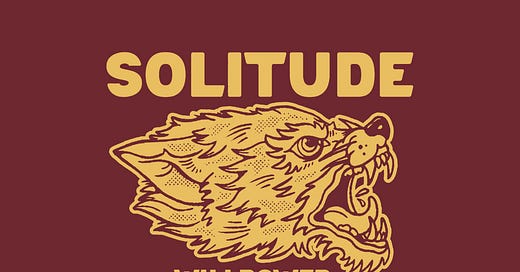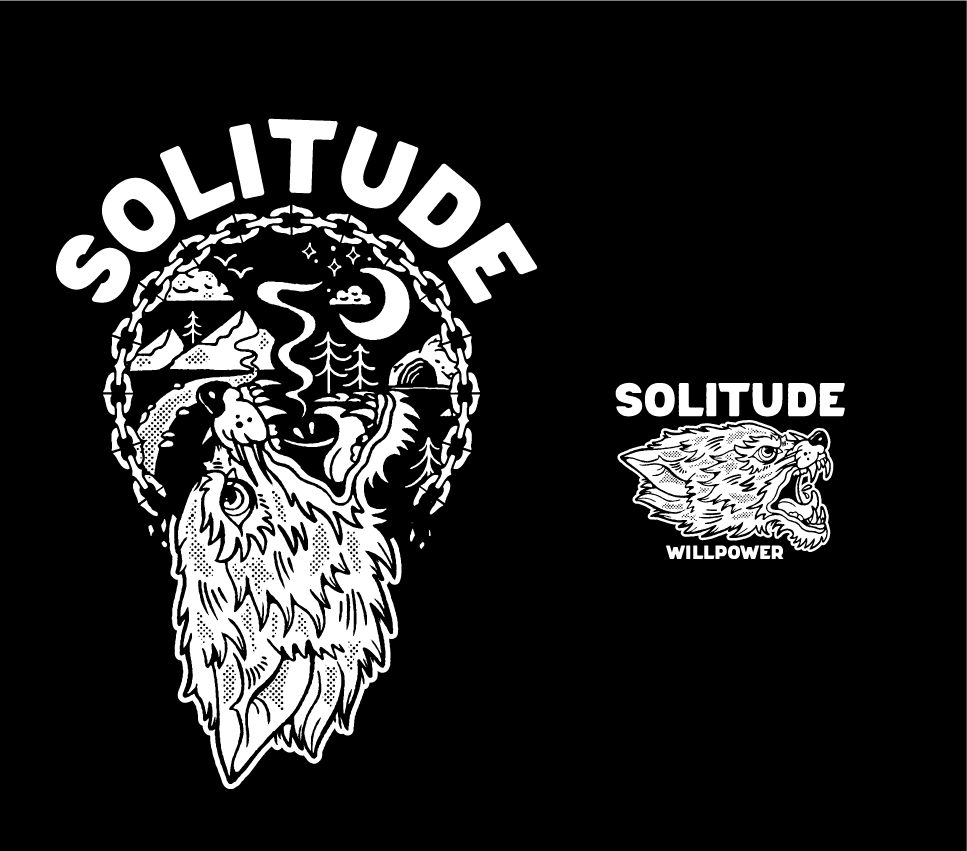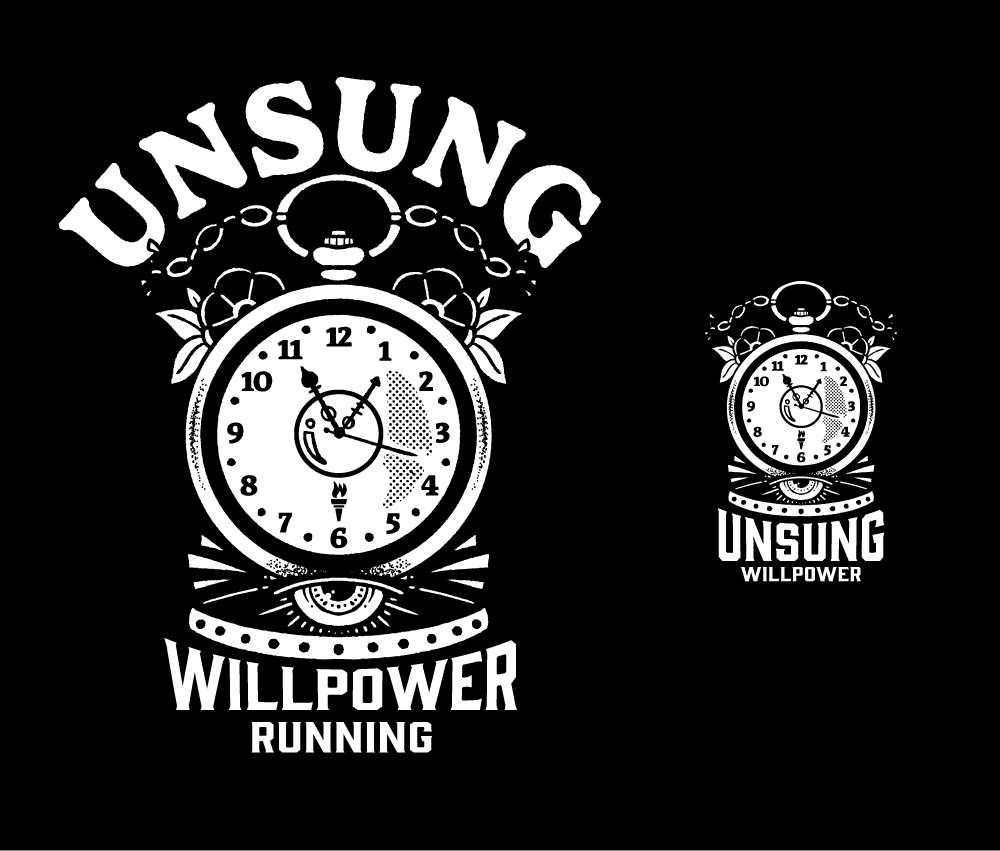I run and I write about running. Both feels very natural to me. Thankfully, the act of swiftly moving forward by foot often triggers a wide range of astonishing thoughts and feelings to write about. But they need a bit of translation to make them accessible to my readers. To you.
Here’s how this translation actually works, based on two concepts I recently created for my running clothing brand, Willpower.
Solitude
The original realization that encouraged me to work on the concept of “Solitude” was, quite obvious, that running alone is an inimitable experience. Usually, it takes a while until the noise in my head ebbed away. But as soon as only my breath, my heartbeat and the pounding of my footsteps remain, I enter an entirely new domain of running.
I originally tried to describe this sensation in another concept called “I Go Solo”, inspired by Tom Rosenthal’s wonderful eponymous song.
„I’m making my way home. I’m making my way. I go solo, oh, I go solo.“
The resulting Willpower Design had a different background, though. The COVID-19 pandemic had just emerged, and no one really knew how to react to it. For a while in 2020, we were not allowed to get close to each other (except for family members), which also meant we had to run in solitude.
The basic idea the “I Go Solo” design transported was, that we are alone in running, anyway. No matter if we are running on our own or in groups. In 2020, I elaborated it this way:
After all, you, as a runner, are on your own. And you’ve always been. No one will ever feel what you feel while running. No one will ever acknowledge the joy and the pain this sport sparks in you. No one will ever magically balance effort versus flow for you. It’s just you, your heartbeat and your stride.
Three years later, the concept of “Solitude” dug a bit deeper. I really wanted to find out what running alone does to me, and how it feels to be fully aware of it. Here is what I came up with:
Running in Solitude
In the serenity of a solitary run, the world fades away, its dissonance replaced by a symphony of solitude.
My breath becomes a whispered mantra, syncing with the heartbeat of the universe. Footfalls and silence fuse as one. As the miles unfold beneath my feet, a sense of liberation takes hold. A liberation from the confines of societal expectations, from the weight of responsibilities, from the limitations of the mind.
In solitude, I unearth intimacy. A profound dialogue with myself, my desires, my fears. I confront the mysteries that lie dormant within, unveiling truths both beautiful and haunting. It is in this revelation that the bliss of running in solitude finds its full expression.
I feel that I haven’t fully explored this concept yet. There’s more to it. I am pretty sure it will inspire me to more writing, eventually.
Unsung
The concept of “Unsung” was something that I hadn’t addressed before. I had carried around the naked word for a while, but couldn’t really put into words what it does to me until I came up with this:
The Unsung Runner
In the era of instant gratification and fleeting attention spans, the unsung runner stands as a testament to patience and simplicity. Her stories unfold silently, whispered only to the wind as they dash past towering skyscrapers and forgotten mountain ridges.
She battles her doubts and fears, pushing herself to the brink of exhaustion and beyond. Day in, day out. Each stride becomes an act of rebellion against mediocrity, a protest against a world fixated on superficial achievements.
The unsung runner seeks no recognition, no grand podiums to bask in the limelight. She does not chase trophies or medals, but a better version of herself. Her battles aren't fought against opponents or the clock, but against "you can't."
In a society obsessed with instant gratification, the true fulfillment lies in the journey and only the journey. All unseen. All unsung.
Very often I collect a few text fragments first, before I start writing the actual text. In this case:
The Unsung Runner
Unseen. Unsung.
Silent Heroes of the Running World
Running in Shadows
You might have noticed that I wrote this text in third person, while the text for “Solitude” was written in first person. I play around with this grammatical twist a lot, and believe that both can do the job to let the reader identify with the text.
The artist, who created the design for “Unsung”, added another wonderful gambit. He suggested illustrating a pocket watch as the main theme. A pocket watch is usually something very precious that you always carry with you, but do not show it to others all the time. At the same, time it embodies personal athletic ambition by being a timekeeper.
Bringing Concepts to Life
Both of these concepts have been recently put into practice as a Preorder Micro Drop for Willpower Running. It’s always very exciting to find out how people react to new designs and their concepts. In this case, I was / am lucky. Both seem to touch runners a lot.
Managing to translate my thoughts and feelings about running into words and being unterstand. That’s the greatest gift of all.
Everything not Running
“I am Straight Edge.”
Four simple words that are still incredibly easy for me to say. It’s been almost 30 years since I committed to a lifelong drug- and alcohol-free, self-conscious and also vegetarian (later on vegan) lifestyle.
Almost. Thirty. Years.
This means 2 things:
I am old
No other idea or life-concept has accompanied me for a longer time
If you are not familiar with the Straight Edge subculture, I leave it up to you to ask das internetz. You might come across a quite elaborate Wikipedia entry, but also some media coverage about all sorts of weird outgrowths Straight Edge has produced over the decades.
Here’s my point: I don’t even know exactly, anymore, how a Straight Edge lifestyle looks, sounds and feels like for young kids these days. I am very much stuck in the 1990s, the time when I first discovered this subculture.
As a 44-year-old, it would be easy to leave behind the label. In fact, a lot of my fellows did. Or even worse: Breaking the Edge, as “we” call it. This means turning your back on the original ideals by starting to drink alcohol again, for example.
But that’s not me. I am still very happy with the choices I have made. That is because it was the Straight Edge that made me stop drinking as a lost 16-year-old alcoholic-aspirant. Not my parents. Not my teachers. Not my doctor. No TV report and no magazine article. Not even the tiny voice inside my head that told me I would be doomed for the rest of my life, if I continued doing what I was doing.
Therefore I am eternally thankful to the Straight Edge. And that’s why I still proudly carry the name.








